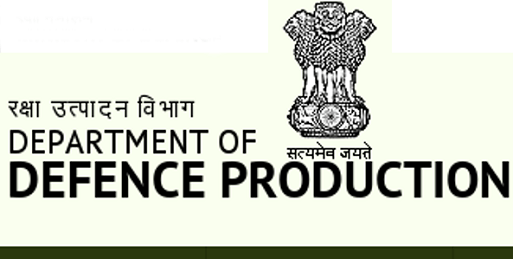The Union Cabinet, presided over by Prime Minister Shri Narendra Modi, has given the green light to the eCourts Project Phase III. This project, designed as a Central Sector Scheme, spans four years, beginning in 2023, with a substantial financial allocation of Rs. 7210 crore.
The e-Courts Project, which has been in progress since 2007 as part of the National eGovernance Plan, has reached its Phase II conclusion in 2023. Phase III of this transformative initiative is guided by the principle of “access and inclusion.”
Building upon the successes of Phase I and Phase II, e-Courts Phase III aims to revolutionize the delivery of justice by transitioning towards digital, online, and paperless court operations. This involves the comprehensive digitization of all court records, including historical archives, and the widespread adoption of e-Filing and e-Payments through the establishment of e-Sewa Kendras in all court complexes.
Additionally, the initiative will implement intelligent systems to facilitate data-driven decision-making for judges and registries, particularly in case scheduling and prioritization. The primary objective of Phase III is to establish a unified technology platform for the judiciary, offering a seamless and paperless interface between the courts, litigants, and other stakeholders.
The Centrally Sponsored Scheme for eCourts Phase III is a collaborative effort between the Department of Justice, Ministry of Law & Justice, Government of India, and the eCommittee of the Supreme Court of India. It will be implemented in a decentralized manner through the respective High Courts, with the aim of creating a judicial system that is more accessible, affordable, reliable, predictable, and transparent for all participants in the legal process.
Components of eCourts Phase III are as follows:
the various components and cost estimates of the eCourts Project Phase III, totaling Rs. 7210 crore. These components encompass a wide range of initiatives, including scanning, digitization, and digital preservation of case records (Rs. 2038.40 crore), cloud infrastructure (Rs. 1205.23 crore), additional hardware for existing courts (Rs. 643.66 crore), and infrastructure for newly established courts (Rs. 426.25 crore).
Additionally, the project includes the establishment of 1150 virtual courts (Rs. 413.08 crore), the deployment of 4400 fully functional eSewa Kendra (Rs. 394.48 crore), and the creation of paperless court systems (Rs. 359.20 crore). It also involves significant investments in system and application software development (Rs. 243.52 crore), solar power backup (Rs. 229.50 crore), video conferencing setups (Rs. 228.48 crore), and e-filing capabilities (Rs. 215.97 crore).
Furthermore, the project allocates resources for connectivity (primary + redundancy) (Rs. 208.72 crore), capacity building (Rs. 208.52 crore), the implementation of CLASS (Live-Audio Visual Streaming System) in 300 court complexes (Rs. 112.26 crore), and the recruitment of human resources (Rs. 56.67 crore). It also reserves funds for future technological advancements (Rs. 53.57 crore), judicial process re-engineering (Rs. 33.00 crore), disabled-friendly ICT-enabled facilities (Rs. 27.54 crore), NSTEP (National Serving and Tracking of Electronic Processes) (Rs. 25.75 crore), online dispute resolution (ODR) (Rs. 23.72 crore), knowledge management systems (Rs. 23.30 crore), e-Office implementation for High Courts and District Courts (Rs. 21.10 crore), integration with the Inter-Operable Criminal Justice System (ICJS) (Rs. 11.78 crore), and the S3WAAS platform (Rs. 6.35 crore).
The scheme’s expected outcomes encompass a comprehensive approach to modernizing judicial services. It aims to bridge the digital divide by enabling citizens without technology access to avail judicial services through eSewa Kendras. Furthermore, the digitization of court records forms the cornerstone for a range of digital services within the project, not only reducing environmental impact but also minimizing paper-based filings and the physical movement of documents.
The initiative facilitates virtual participation in court proceedings, resulting in cost savings related to travel expenses for witnesses, judges, and other stakeholders. It also allows for the convenient payment of court fees, fines, and penalties from any location and at any time. Additionally, the expansion of eFiling streamlines the document submission process, reducing both time and effort while minimizing human errors and paper-based records.
Leveraging advanced technologies such as Artificial Intelligence (AI), Machine Learning (ML), Optical Character Recognition (OCR), and Natural Language Processing (NLP), the project aims to create a “smart” ecosystem. This entails reducing data entry tasks for registries, enabling better decision-making and policy planning, smart scheduling, and data-driven decision-making for judges and registries, ultimately enhancing predictability and optimizing the capacity of judges and lawyers.
The initiative also extends the reach of virtual courts beyond traffic violation cases, eliminating the need for litigants or lawyers to be physically present in court. This expansion fosters increased accuracy and transparency in court proceedings. Additionally, it places significant emphasis on automating the delivery of court summons through the NSTEP (National Serving and Tracking of Electronic Processes) system, substantially reducing trial delays.
Overall, the integration of emerging technologies into court processes promises to enhance efficiency and effectiveness, contributing significantly to the reduction of pending cases in the judicial system.





